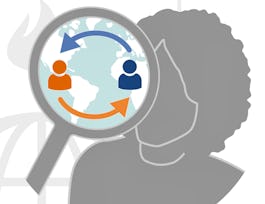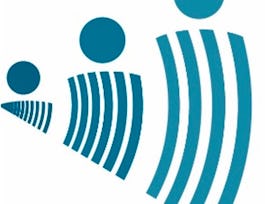Stress First Aid (SFA) is a peer support toolkit designed to preserve life, prevent further harm, and promote recovery. Stress First Aid offers a flexible menu of options for recognizing and addressing stress reactions. It can be used for self-care, to help co-workers with stress reactions, or to help someone seek other types of support. Stress First Aid is a framework of practical actions that can help reduce the likelihood that stress reactions will develop into more severe or long-term problems. Ideally everyone in an organization would learn the vocabulary and basics of Stress First Aid, to share a language and understanding of stress and stress injury. When everyone in an organization is trained in SFA, support could occur wherever and whenever it’s needed.



Stress First Aid for Healthcare Workers: A Peer Support Tool



Instructors: Sean Convoy
Sponsored by Duke University
Recommended experience
What you'll learn
Differentiate the range of presentations of stress within the stress continuum model.
Distinguish yellow zone from orange zone stress(ors) and identify four sources of orange zone stress.
Recognize “Grow the Green” mental wellness practices for individuals and groups.
Apply the Stress First Aid principles of Continuous, Primary and Secondary Aid through case exemplar.
Details to know

Add to your LinkedIn profile
5 assignments
See how employees at top companies are mastering in-demand skills


Earn a career certificate
Add this credential to your LinkedIn profile, resume, or CV
Share it on social media and in your performance review

There are 4 modules in this course
In the first week of "Stress First Aid for Healthcare Workers," we'll lay the foundation for understanding stress and stress injury. We’ll discuss the unique stressors that healthcare professionals face in their daily practice and gain crucial insights to recognize early signs of stress injury. By the end of this week, you'll have the vocabulary to discuss stress within the context of the Stress First Aid peer support model.
What's included
5 videos9 readings2 assignments3 discussion prompts
In the second week of "Stress First Aid for Healthcare Workers", we will link the stress first aid model to both the stress continuum and four sources of orange zone stress providing learners with a framework from which to assess when stress first aid is needed. We will deconstruct the stress first aid model emphasizing Continuous, Primary, and Secondary Aid strategies linking them to a set of actionable behaviors designed to preserve life, prevent further harm, and promote recovery. Upon completion of Week 2 content, participants will gain a greater appreciation for why stress first aid is optimally delivered by peers because peers have already acquired the necessary context to care for those around them in the workspace.
What's included
9 videos7 readings1 assignment7 discussion prompts1 plugin
This week, you will focus on methods that will encourage growth within the green zone of the Stress Continuum. While we’ve talked about Stress First Aid mostly in relation to when individuals are facing a crisis (orange or red zone), it is also important for us to recognize that it’s important to recognize opportunities for wellness and resilience-based practices. As we move toward the final week of the course, we’ll also consider what we need to understand about ourselves as caregivers of Stress First Aid.
What's included
6 videos9 readings1 assignment5 discussion prompts
This week you will apply the content learned from weeks 1, 2 and 3 through case study application. Through case studies, you will be challenged to apply Continuous, Primary and Secondary Aid strategies through the prism of the stress continuum. Additionally, we will provide additional guidance around the value of performing your own community resource list so that you will be best prepared to support peers wherever they may fall along the Stress Continuum.
What's included
9 videos11 readings1 assignment8 discussion prompts
Offered by
Why people choose Coursera for their career




Recommended if you're interested in Health

Johns Hopkins University

Stanford University

University of Michigan

Johns Hopkins University

Open new doors with Coursera Plus
Unlimited access to 10,000+ world-class courses, hands-on projects, and job-ready certificate programs - all included in your subscription
Advance your career with an online degree
Earn a degree from world-class universities - 100% online
Join over 3,400 global companies that choose Coursera for Business
Upskill your employees to excel in the digital economy



